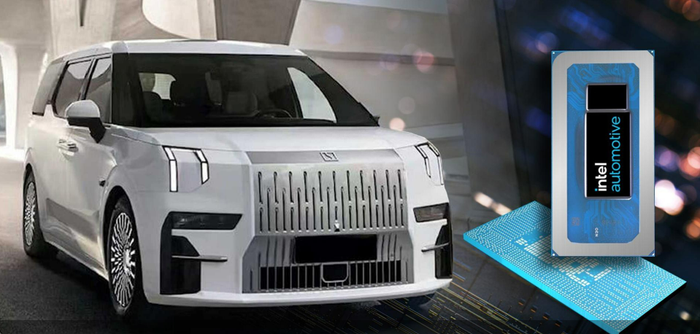January 10, 2024

Silicon Mobility is a fabless silicon and software company that specializes in SoCs for energy management within electric vehicles.
Intel says absorbing the firm’s technology portfolio of accelerators, which are designed to provide gains in vehicle energy efficiency, will extend its reach in the automotive space ‘beyond high-performance compute into intelligent and programmable power devices.’
“Intel is taking a ‘whole vehicle’ approach to solving the industry’s biggest challenges,” said Jack Weast, vice president and general manager of Intel Automotive (pictured). “Driving innovative AI solutions across the vehicle platform will help the industry navigate the transformation to EVs. The acquisition of Silicon Mobility aligns with our sustainability goals while addressing a critical energy management need for the industry.”
As well as securing Silicon Mobility in its back pocket, Intel also announced at CES a raft of new AI-enhanced ‘software-defined vehicle’ system-on-chips (SoCs), designed to enable the ‘most desirable’ in-vehicle AI use cases, such as driver and passenger monitoring.
In a demo it showed off 12 ‘advanced workloads’ – including generative AI, e-mirrors, high-definition video conference calling and PC games – running concurrently across multiple operating systems.
Intel says this demonstration shows how car manufacturers can ‘consolidate legacy electronic control unit (ECU) architecture to improve efficiency, manageability and scalability’ while integrating their own custom AI applications.

Weast added: “Intel’s AI-enhanced SDV SoCs combine the best of AI PC and Intel data centre technologies necessary to support a true software-defined vehicle architecture.”
“Powering the latest AI-enabled experiences for the front and back seat of the vehicle are the tip of the spear for our automotive growth ambitions. Intel has the right mix of experience and products to bring order on all fronts to the disruption happening across automotive.”
EV manufacturer Zeekr, owned by Geely Holding Group, was announced as the first car firm to adopt the new SoC. Andy An, president of Geely and CEO of Zeekr, said this will allow it to deploy things like generative AI-based voice assistants in cars.
“The benefit of forward-compatibility on Intel systems allows us to continually scale and upgrade services to create the next-gen experiences that our customers desire,” he said.

Elsewhere, Intel also announced that it will deliver the industry’s first ‘open automotive chiplet platform’ which will allow customers to integrate their own chiplet into an Intel Automotive product.
Intel claims this underscores its commitment to be the first automotive supplier to support the integration of third-party chiplets into its automotive products, the main stated benefit being OEMs have the freedom to incorporate a custom chiplet into an Intel roadmap product for a cheaper cost than a fully custom SoC.
The ability to mix and match chiplets also eliminates the risk of vendor lock-in and fosters a more scalable software-defined architecture, so claims Intel.
It intends to work with R&D hub Imec to ensure its chiplet packaging technologies meet the ‘strict quality and reliability requirements necessary for automotive use cases.’
Intel says these things combined will help customers ‘solve the architectural shift to software-defined vehicles, make the all-electric future sustainable and help OEMs achieve all of this at scale.’
In a sense the thrust of the announcements appear to be broadly aligned with what fellow chip firm Qualcomm announced at CES this year – in that rather than the emphasis being solely on pushing for ever more flashy, advanced, or borderline absurd features on modern cars, its also about making it easier or cheaper to get some AI/software functionality into a wider set of vehicles.
Aside from automotive news, Intel also announced at CES its Intel Core 14th Gen mobile and desktop processor lineup, including new HX-series mobile processors and mainstream 65-watt and 35-watt desktop processors. It also introduced its new Intel Core mobile processor Series 1 family, led by the Intel Core 7 processor 150U.
“Our Intel Core 14th Gen processor family is built to bring top-notch performance and platform features to enthusiast and mainstream PC users alike,” said Roger Chandler, Intel vice president and general manager, Enthusiast PC and Workstations, Client Computing Group. “Enthusiasts on-the-go can now enjoy the best mobile experience available today with our HX-series processors. And mainstream desktop users can now experience the efficient performance and robust platform features available in our latest-gen 65-watt and 35-watt desktop processors.”
About the Author
You May Also Like










.png?width=300&auto=webp&quality=80&disable=upscale)


_1.jpg?width=300&auto=webp&quality=80&disable=upscale)